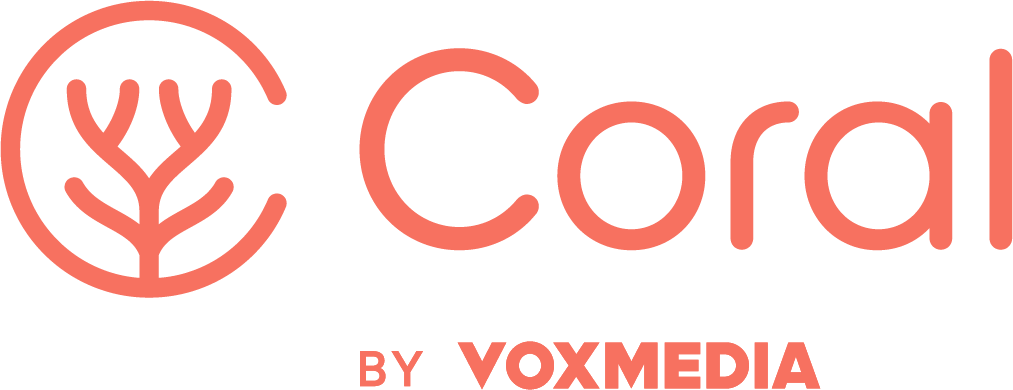By Jennifer Peepas
CaptainAwkward.com is an internet advice column that I started in January 2011. It started with a few friends giving advice, and six years later the site now attracts a dedicated community of readers and commenters, with an average of more than 800,000 page views per month.
I moderate comments on the blog personally and run a Twitter feed, @CAwkward, that is a mix of blog-related content and my personal feed – complete with photos of my cat (a LOT of photos of my cat) and yelling about politics. There are reader-organized gatherings in cities all over the world and a spin-off forum site, FriendsofCaptainAwkward.com, which is entirely created and managed by a community of readers of the site.
Since 2012, the site has earned money – first through WordPress.com’s WordAds program and biannual “Pledge Drives”, where readers are invited to give donations. As of 2017, the site is ad-free thanks to fan support through crowdfunding platform Patreon, though I still keep my day job as a teacher of writing and media production. Here’s how it all came about.
Origin Story
I was and remain a huge fan of Washington Post advice columnist Carolyn Hax, Dear Sugar at The Rumpus, Slate’s Dear Prudence, and The Stranger’s Savage Love. When I used to read the letters people sent to those outlets, one thing consistently stuck out to me: the advice seekers were reaching out with complex tales of woe, which would be read and dissected by thousands of people… but they often hadn’t had even a basic conversation with the other people affected by the issue.
Columnist after columnist would say, “Well, have you told the other person what you’re telling me? It sounds like you need to have an honest conversation!” And I would think, “Come on, these people would rather chew their own leg off than have this conversation. I know these people. I was raised by these people. I am these people.”
I’d had to teach myself how to have these kinds of conversations as an adult. Was my experience something that my fellow late bloomers could adapt to their own lives? Early on, Captain Awkward’s tagline was “Use Your Words” – it was built around the idea that there is power in speaking up, even when it’s scary, even when you’ve been raised and trained to think that you should keep quiet. It was always about the words.
Evolution 1: Comments Policy
As I was starting the site, there was another thing I’d noticed about other online advice sites: the commenters were so mean. Everyone was so sure that they could outsmart the Letter Writers and their problems. If someone was going through financial troubles, why hadn’t they gotten a better job and made better decisions? Being sexually harassed at work? Are you really sure you didn’t do something to encourage it? Unwanted pregnancy? Guess you should have just planned better! There were lots of kind and helpful commenters, too, but the constant “You should have___” and “C’mon, just ____!” were a real bummer. I wanted everyone who contributed to the site to be conscious that behind each letter was a real human being who had shared a vulnerable story with us all.
My comments policy was heavily influenced by Anil Dash’s essay “If Your Comment Section Is Full of Assholes, It’s Your Fault” as well as the thoughtful moderation at Kate Harding’s blog Shapely Prose.
When a guest post on Shapely Prose [about how men need to communicate better with women they don’t know] received hundreds of hostile comments, Harding and her team changed their moderation policy from mostly light touch to something far more selective. Harding argued that while it is possible to disagree and have healthy discussion, bloggers are also not obligated to host and shelter every drive-by opinion someone might have, in the name of “free speech.”
I didn’t want readers to have to dig through pages of hateful or irrelevant comments in order to discuss issues that were relevant to their lives. By laying out some clear rules, and giving myself permission to delete certain comments without engaging or debating, I was able to make room for good, healthy, complex, good-faith discussions of difficult and personal issues.
Evolution 2: Me, Myself & Moderation
As the comment moderation load grew – sometimes comment discussions would go on for days, with hundreds of back-and-forth conversations – some very kind community members offered to help out with the work.This went 97% great, but when it was bad it was terrible. On the one hand, the mods were taking on a lot of work and helping me in their free time, so I wanted to back them up and to support them whenever possible. On the other hand, if they made a bad judgment call, or personalities clashed, or they overstepped a line, they drew a lot of negative attention and harsh feedback, and that meant a lot of emotional cleanup work for me.
In the end, I decided to go back to being be the sole, imperfect moderator – with the exception of guest-posts, where the posters can also moderate their own comment threads. It’s my site, so if there are going to make mistakes in the mod queue, let them be my mistakes.
Making this work involves setting certain expectations. For example, if I am asleep or at work, your comment may not get cleared out of the spam trap right away. The spam filter is hungry, and this can slow down discussions, especially if people are having an intense exchange. While it’s understandably annoying for users to wait until I can clean out the spam trap, I am not entirely sure that slowing down many of these discussions is a bad thing.
Something that breaks the rules might also be unintentionally allowed to linger a while on the site until I catch it. The negative feedback I receive is usually along the lines of, “Why was this allowed through moderation?” and the answer usually is “I wasn’t looking at moderation for a few hours while I did other (necessary) stuff.” When I put it like that, people are usually very understanding, though this area (as well as Twitter) is one place where there’s sometimes tension between Jennifer-The-Person and CaptainAwkward.com-The-Brand.
I’ve also learned lessons about focus and applying my energy. For instance, if I know I’m not up to moderating a certain discussion, I know it’s okay to turn off comments altogether, or to delay posting a sensitive topic until I have the bandwidth to pay attention to the discussion.
Evolution 3: Friends of Captain Awkward
In 2013, some dedicated readers approached me about creating a spin-off fan forum called Friends of Captain Awkward. This would allow readers to run their own open threads, and to discuss current columns, get support, and generally hang out online together. We discussed moderation policies, the kind of community they wanted to create, and made a loose agreement that they would completely own and run the site, but that I was invited to bring it under the umbrella of my site at any time.
I created an account on their forum in the early days, which I used to make precisely one post and maybe a comment or two, and then I left, never to return. Not because they were doing a bad job – quite the contrary, they were doing a great job! I’ve referred many readers over to the forums because they have questions similar to ones I’ve already answered on the site, or because their questions are too specific or outside my expertise. At Friends of Captain Awkward, they can get peer support. It is also a space for the community to spend time together and to talk about the site without me having to be the host or the boss or to be forced to address my feelings about anything anyone says. It’s such a gift.
Evolution 4: The Glossary
We generate a lot of in-jokes and site-specific vocabulary on Captain Awkward. The Darth Vader Boyfriend. The African Violet of Broken Friendship. A House Full Of Evil Bees. One of our commenters, kind and generous “thegirlfrommarz”, put together a glossary for new readers on her own website. Having such a resource available for newbies hopefully lets them quickly catch up on the lingo, and quickly feel a part of the culture without needing old-timers (or me) to explain every reference. It’s also gratifying for me as a writer to be able to go back and easily track the start of a sticky phrase or idea.
My social strategy
Links to and quotes from my blog posts are often widely shared on Facebook and on Tumblr, and it’s always fun to see a quote make its way back to me as it bounces around the web. However, I don’t have a Facebook page or a Tumblr for the site, and I don’t plan to. I know I’m missing out on clicks or social engagement units or whatnot by not setting up pages and collecting those sweet, sweet metrics, but I’ve decided that I don’t actually need to see what everybody’s uncle thinks about my work in real time, and I don’t have the energy or time to moderate any satellite pages.
Keeping the focus on my own site lets readers use pseudonyms (important when discussing very sensitive topics) and doesn’t connect their discussions to other online accounts or identities. I think that forcing an extra layer of work – to navigate to my site, to fill out a few fields to log in or create a username, and, for first-time commenters, to make it through the moderation queue – protects me somewhat from bots and mass trolling. It also lets me keep the discussions on topic, and make sure that people are posting in good faith and within the site guidelines.
When people come to Captain Awkward, I want them to know that they are going to be able to have a reasonably civil and constructive discussion about the issues.
Jennifer Peepas is the founder of Captain Awkward and is a writer, director, and film instructor based in Chicago.


![[IMAGE] One hand is reaching out for the support of another. Faces are obscured.](https://guides.coralproject.net/wp-content/uploads/2017/07/pexels-photo-517047-1-e1501080604936.jpg?w=1200&h=500&crop=1)